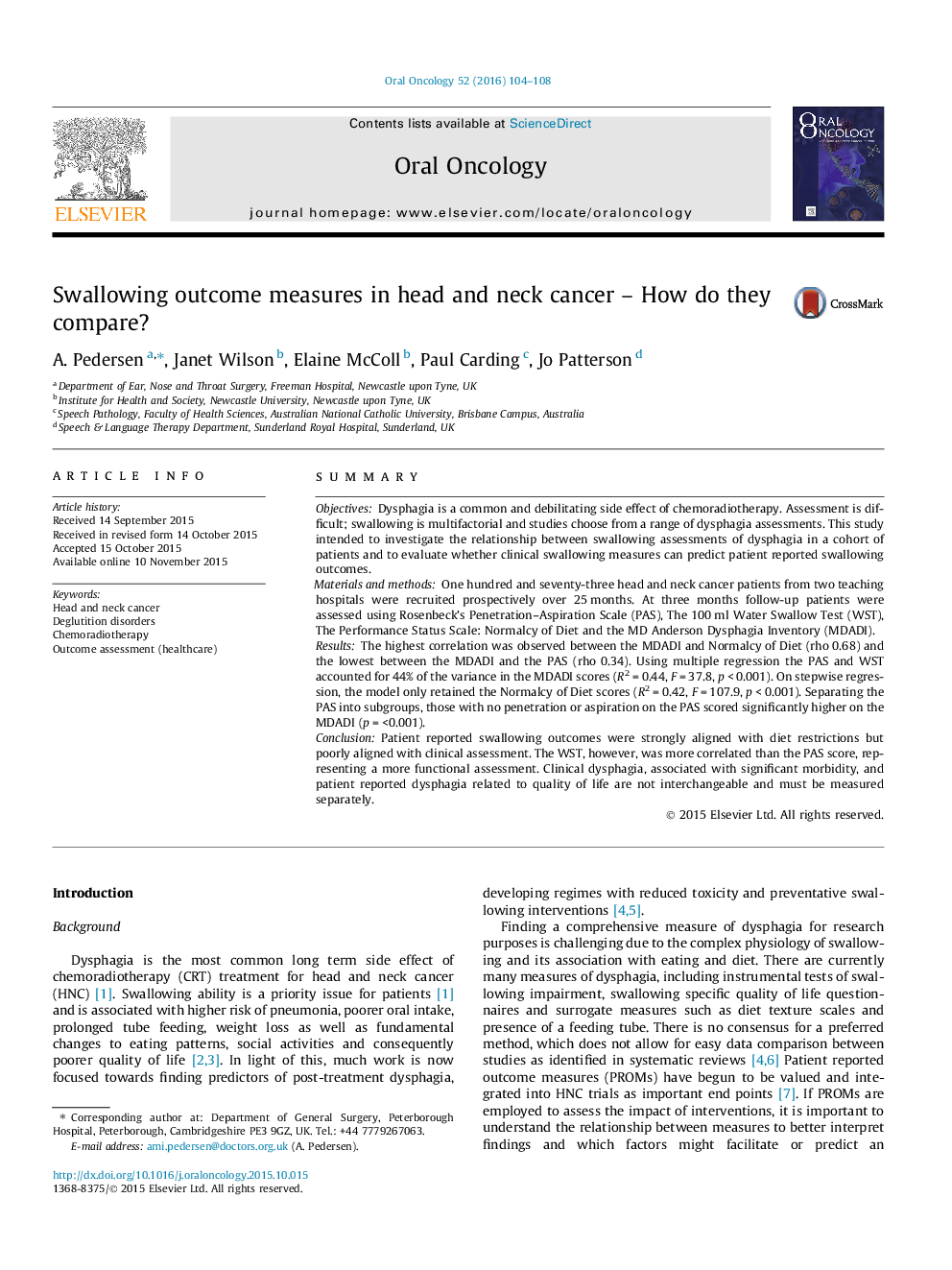| کد مقاله | کد نشریه | سال انتشار | مقاله انگلیسی | نسخه تمام متن |
|---|---|---|---|---|
| 3163827 | 1586258 | 2016 | 5 صفحه PDF | دانلود رایگان |
• Head and neck cancer patients had swallowing assessments post chemoradiotherapy.
• We compared clinical measures of dysphagia, diet and patient reported outcomes.
• There was a strong relationship between diet restrictions and patient reports.
• Patient reported outcomes were poorly aligned with clinical assessment.
• All dysphagia assessments are not interchangeable when used for research outcomes.
SummaryObjectivesDysphagia is a common and debilitating side effect of chemoradiotherapy. Assessment is difficult; swallowing is multifactorial and studies choose from a range of dysphagia assessments. This study intended to investigate the relationship between swallowing assessments of dysphagia in a cohort of patients and to evaluate whether clinical swallowing measures can predict patient reported swallowing outcomes.Materials and methodsOne hundred and seventy-three head and neck cancer patients from two teaching hospitals were recruited prospectively over 25 months. At three months follow-up patients were assessed using Rosenbeck’s Penetration–Aspiration Scale (PAS), The 100 ml Water Swallow Test (WST), The Performance Status Scale: Normalcy of Diet and the MD Anderson Dysphagia Inventory (MDADI).ResultsThe highest correlation was observed between the MDADI and Normalcy of Diet (rho 0.68) and the lowest between the MDADI and the PAS (rho 0.34). Using multiple regression the PAS and WST accounted for 44% of the variance in the MDADI scores (R2 = 0.44, F = 37.8, p < 0.001). On stepwise regression, the model only retained the Normalcy of Diet scores (R2 = 0.42, F = 107.9, p < 0.001). Separating the PAS into subgroups, those with no penetration or aspiration on the PAS scored significantly higher on the MDADI (p = <0.001).ConclusionPatient reported swallowing outcomes were strongly aligned with diet restrictions but poorly aligned with clinical assessment. The WST, however, was more correlated than the PAS score, representing a more functional assessment. Clinical dysphagia, associated with significant morbidity, and patient reported dysphagia related to quality of life are not interchangeable and must be measured separately.
Journal: Oral Oncology - Volume 52, January 2016, Pages 104–108
